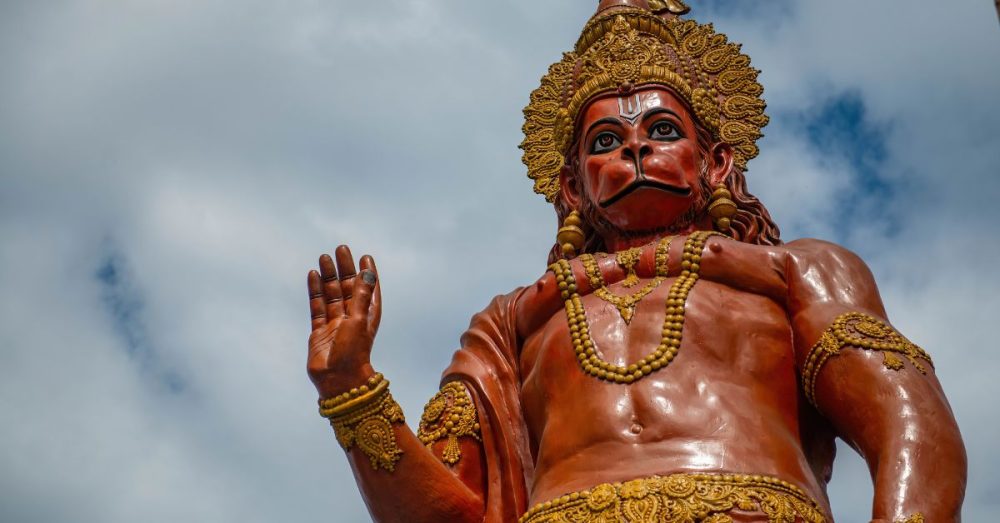A few days ago, we received news of a 90-foot-tall statue of a Hindu god named Hanuman to be built in Texas. This news elicited feelings of astonishment and sadness animated by curious questions that can be expressed only by a person who has lived significant portions of his life in India and the USA, understanding both the predominant Hindu culture of India and the liberal western culture of the USA.
One of the winsome aspects of liberal Western culture, evidenced in the US today, is the thriving presence of diverse groups of people from across the religious and ethnic spectrum. It is winsome because people of different faiths, national origins, education levels, and economic backgrounds have established and continue to establish a prosperous and self-sufficient middleclass constituency that delivers value to our nation through their financial successes, culinary influences, and spiritual experiences. The meritocratic nature of our businesses and institutions attracts the best and brightest people from across the world. It behooves us in the US to be inclusive of these people and celebrate their successes as part of our glorious and unparalleled tradition of being an immigrant nation. Our astonishment is grounded on the above-stated inarguable facts.
Our sadness upon hearing the news of this statue is grounded in the notion of the unique foundation of Judeo-Christian morals and values that have served as the ballast on which the mighty American democracy has run on the rails of its constitutional republic system since its inception. These foundational values have motivated the American nation to repair its faults over time, bringing restoration through the abolishment of slavery, women’s suffrage, and the enactment of civil rights laws in the latter part of the 20th century. These foundational values are the driving force behind the generosity of the Americans to the less fortunate in the world, whether be it the Marshall Plan for rebuilding Europe after World War II, being the major contributor of the United Nations even today, or the repeated economic support to nations after earthquakes, tsunamis, and other disasters.
The success of our nation over the past 248 years can be largely attributed to the divine blessings of God due to the permeation of Judeo-Christian values and ethics throughout the nation’s system of governance. This system functioned in a deliberate, intentional manner in the early years and largely in an unintentional manner in more recent years, in the manner of a vehicle running on fumes from diminishing fuel that has yet to be replenished. In addition, the mostly peaceful democracy of our nation depended on the successful assimilation of immigrants into the American cultural and governance system that recognized and valued its Judeo-Christian heritage. While we must welcome people of all faiths and ethnic or national origins and respect their peaceful religious pieties and cultural norms, we should not let the religions and other cultures of the world impose themselves on us in a manner that we would not impose and have not imposed on them, especially when such a similar reciprocal felicitous religious imposition of a tall Christian statue would never be accepted or tolerated in their native country – in this instance, India.
One of the reasons we have not witnessed large religious statues in the USA, unlike some Catholic nations such as Brazil and Hindu nations such as India, is the common foundational belief in the Hebrew Bible, which was frequently referred to since our nation’s founding. The influence of the Hebrew Bible can be seen in the inscription of a portion of the verse from Leviticus 25:10 on the Liberty Bell in Philadelphia, in the adorning of Moses with the Ten Commandments on the US Supreme Court building, and in the various Judeo-Christian inscriptions in the US Capitol and the Washington monuments. God commanded us in the same book of Leviticus that our founding fathers were well-versed in, that “You shall not make for yourselves idols, nor shall you set up for yourselves an image or a sacred pillar, nor shall you place a figured stone in your land to bow down to it; for I am the Lord your God” in Lev 26:1. This foundational tradition of avoiding idolatry through the display of prominent religious idols and figures is a tradition worth preserving; it has served us well and keeps competing religious beliefs from disfiguring our skyline in unnecessary idolatry one-upmanship.
Even from a secular historical perspective, this statue is a poor reflection of Houston’s history as this statue would dwarf the non-religious Sam Houston statue standing about 67 feet tall, and overshadowing secular and inclusive institutions such as NASA. When our entire culture is grasping for equality, we find it counterproductive that a small minority group’s religious symbol would be elevated above others.
It is worth remembering the saying: “If we don’t stand for something, we may fall for anything.” We must not inadvertently fall for foreign idolatry practices, such as this 90-T tall Hindu statue, that would undermine the foundational values guarding our society. We humbly request the concerned authorities to respectfully decline the permit for this statue and prevent the imposition of idolatry beliefs on our citizens who subscribe to diverse faiths, including the native Christian faith that abhors idolatry statues.


